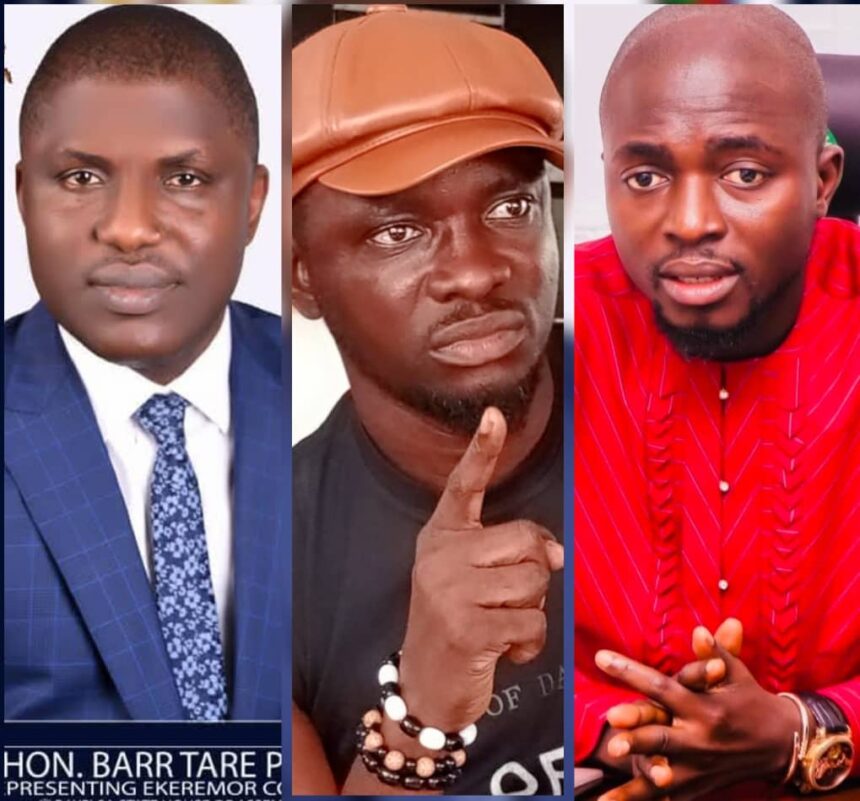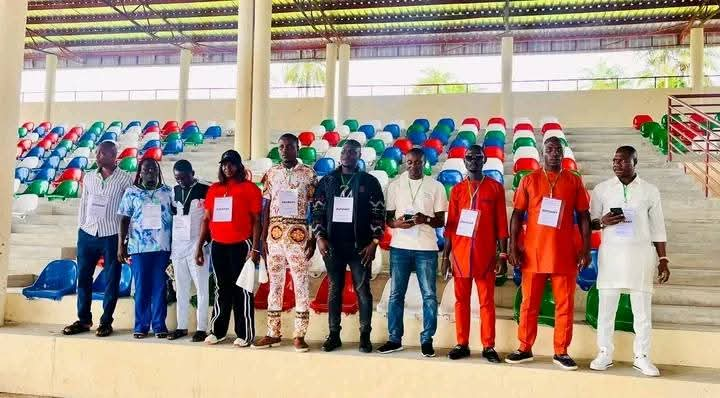The political rivalry between Ekeremor Constituency 1 lawmaker Hon. Porri and his former ally Ebilade has intensified, as the constituency assembly issued a sharp response to recent criticisms.
The group headed by Comrade George Ekpuke accused Ebilade of inconsistency, opportunism, and betrayal, while affirming Porri’s legitimacy and right to pursue higher political office.
The controversy began after Ebilade questioned Porri’s qualification and capacity to contest for the Bayelsa West Senate seat. In a statement described as contradictory, Ebilade argued that Porri lacked the necessary competence, yet acknowledged that Porri, being above 40 years of age, was constitutionally eligible to run for the position. According to the constituency assembly, this contradiction exposed Ebilade’s lack of clarity and cast doubt on the credibility of his position.
The group defended Porri, stressing that as an elected representative, he carries the mandate of the people of Ekeremor Constituency 1. They asserted that the people of the constituency had declared it their turn to produce the next senator, and that Porri, as their representative, was obligated to pursue that mandate if he so chose. They emphasized that Porri’s ambition was not an act of betrayal but a fulfillment of his responsibility to his constituents.
The assembly also pushed back against Ebilade’s claims of having significantly contributed to Porri’s political growth. They argued instead that Porri had played a central role in Ebilade’s own rise. Citing Porri’s leadership roles in student bodies and the Ijaw Youth Council (IYC), they noted that Ebilade was largely absent during Porri’s early political trajectory. They further listed occasions where Porri allegedly facilitated Ebilade’s political appointments and personal growth, including securing his first government role as a Special Adviser, relocating him to Aleibiri for stronger political grounding, and mobilizing support for him to secure the IYC spokesman position.
Despite this support, the assembly accused Ebilade of turning against Porri. They recalled that he once organized youths to endorse him against Porri in an Assembly election, only for those same youths to later withdraw their support after questioning his consistency. They pointed to his failed bid for IYC President as further evidence of political weakness, claiming he was unable to succeed without Porri’s backing.
Beyond internal rivalry, the assembly criticized Ebilade’s record with the Bayelsa State Prosperity Government. They accused him of disrespecting a sitting governor despite being supported by the administration and alleged that he exploited political appointees by demanding returns from their salaries. These actions, they said, reflected a self-serving approach to politics.
Ebilade’s tenure as National Spokesman of the IYC was also called into question. The assembly alleged that during the struggle over the Niger Delta Development Commission (NDDC), Ebilade compromised the collective interest of Ijaw youths by secretly accepting money and declaring there would be no protest. This, they claimed, led to the Minister of Niger Delta Affairs dismissing the IYC as an “unknown group.” According to them, this incident earned him the derogatory nickname “Mr. Cash Out” and disqualified him from holding any moral ground to criticize others.
The assembly reminded Bayelsans of past incidents, including the 2015 governorship election, when Porri mobilized support across Ekeremor for former Governor Seriake Dickson’s second-term bid. They claimed that Ebilade, instead of joining the effort, attempted to disrupt Porri’s campaign in Ekeremor town, only to be chased away by residents.
In their final position, the assembly called on the people of Bayelsa West and Ekeremor to dismiss Ebilade’s recent comments, labeling him a political jobber and failed opportunist. They stated that he had never secured victory in his own polling unit, and therefore lacked the credibility to challenge Porri or speak for the constituency.
The statement concluded with a strong appeal to the public to remain focused on Porri’s mandate, describing him as a leader fulfilling the will of his people, in contrast to what they called Ebilade’s pattern of inconsistency and opportunism.





